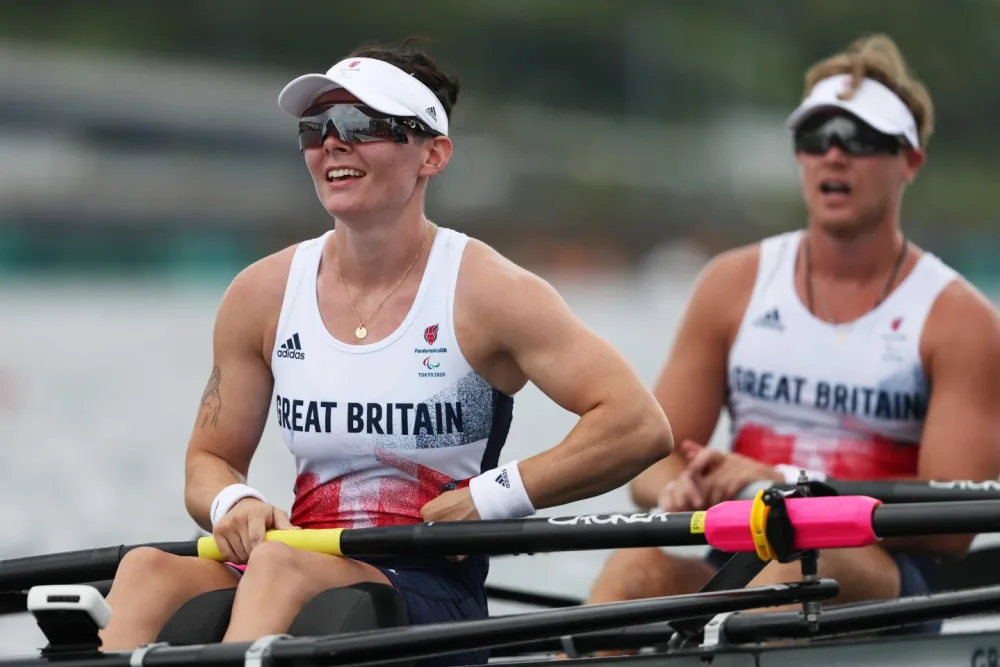
Why Johnny Grasser Sees Disability as a Construction Site, Not a Stop Sign for Sport
Find out how Johannes “Johnny” Grasser overcomes physical disability to prove to the world that impossible is nothing.

Whether it’s surfing on a longboard, jumping from a 7.5-meter-high diving board in a wheelchair, conquering the 16km Mud Masters obstacle course, or climbing Sugarloaf Mountain in Rio de Janeiro, Johannes “Johnny” Grasser fully aligns with the mantra that Impossible is Nothing.
Despite his disabilities, Johnny does not give external influences power over his life, but rather puts himself in the driver’s seat. He is always open to new things and seeks creative solutions with everyday sports as a medicine for his body.
I recently had the chance to sit down with Johnny to find out more about his spectacular achievements.
The motivation to power through
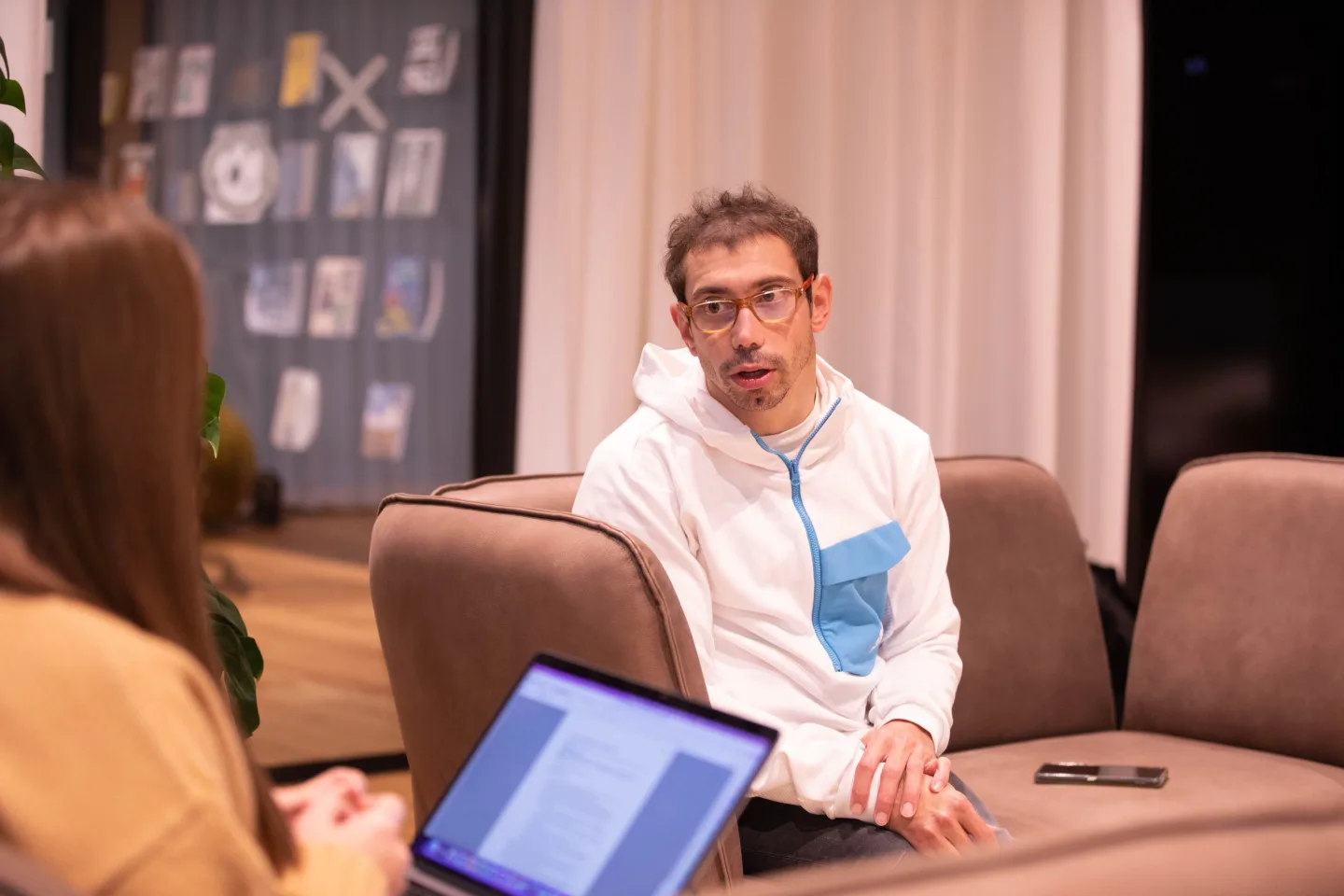 I got the chance to sit down with Johnny Grasser during his recent trip to our HQ in Herzogenaurach, Germany.
I got the chance to sit down with Johnny Grasser during his recent trip to our HQ in Herzogenaurach, Germany.
Johnny explained to me that the path to his achievements is something he owes to his family and the people around him. At the same time, his determination to prove his doubters wrong gave him just the right amount of motivation to hit his targets.
“I’ve been disabled since birth with a condition called tetra spasticity. This simply means that my basic muscle tone is about three times that of someone without a disability, meaning that I have uncontrolled muscle twitches. Typically, this leaves people with this condition unable to sit, walk, or eat, all of which requires 24/7 support. From the beginning, my parents tried to raise me normally, to challenge me, and to help me with my training and therapy. As a result of this, I can now live a relatively independent and autonomous life.
“In 2004, my condition got so bad that I couldn’t walk and an operation was required. After that, it was like a new start for me as I started thinking to myself, ‘Okay, what do I need to change? What do I need to do differently?’
“I trained incredibly hard in rehab, but after two years the doctors said that there was still no improvement, and this would also not be the case in the future. But I kept going. I decided that I’d workout even more. I increased my workload up to four hours a day, in addition to all the other sports I usually did. After around 10 weeks, my condition was better than before the setback.
"But I kept going. I decided that I’d workout even more."
“Two years later, I sat down with my therapist who suggested that I study something where I could work around my training. He suggested that I study sport. I flipped him the bird and asked him if he’d run the 3,000-meter aptitude tests for me. How could I do that? But I let myself be talked into it. So, it came to be that I went to university in Munich to study a bachelors in sport – including one year abroad at QUT in Australia, before going to the German Sports University Cologne for my masters. All the while I was thinking that I had to make sure that I have something that sets me apart from others to have a chance in the job market.”
But Johnny’s career path was far from plain sailing and that he landed very hard in reality.
Pushed back to reality
Johnny went on to explain that things didn’t quite go as he had expected.
“My time at university wasn’t always easy, because not everyone was enthusiastic about me studying sports or working with a disability, as it comes with a lot of challenges. In 2014, my physical condition got worse, and no matter how much I trained it didn’t improve, so I missed out on the chance to go to the Paralympics.
"After I finished my studies, I was looking for a job. I wrote around 900 applications, but I kept on getting rejected. To be honest, that was a pretty tough period in my life, and it left some pretty hard marks."
He told me that at a certain point of time, he knew he needed to go his own way and follow his own path.
The tipping point
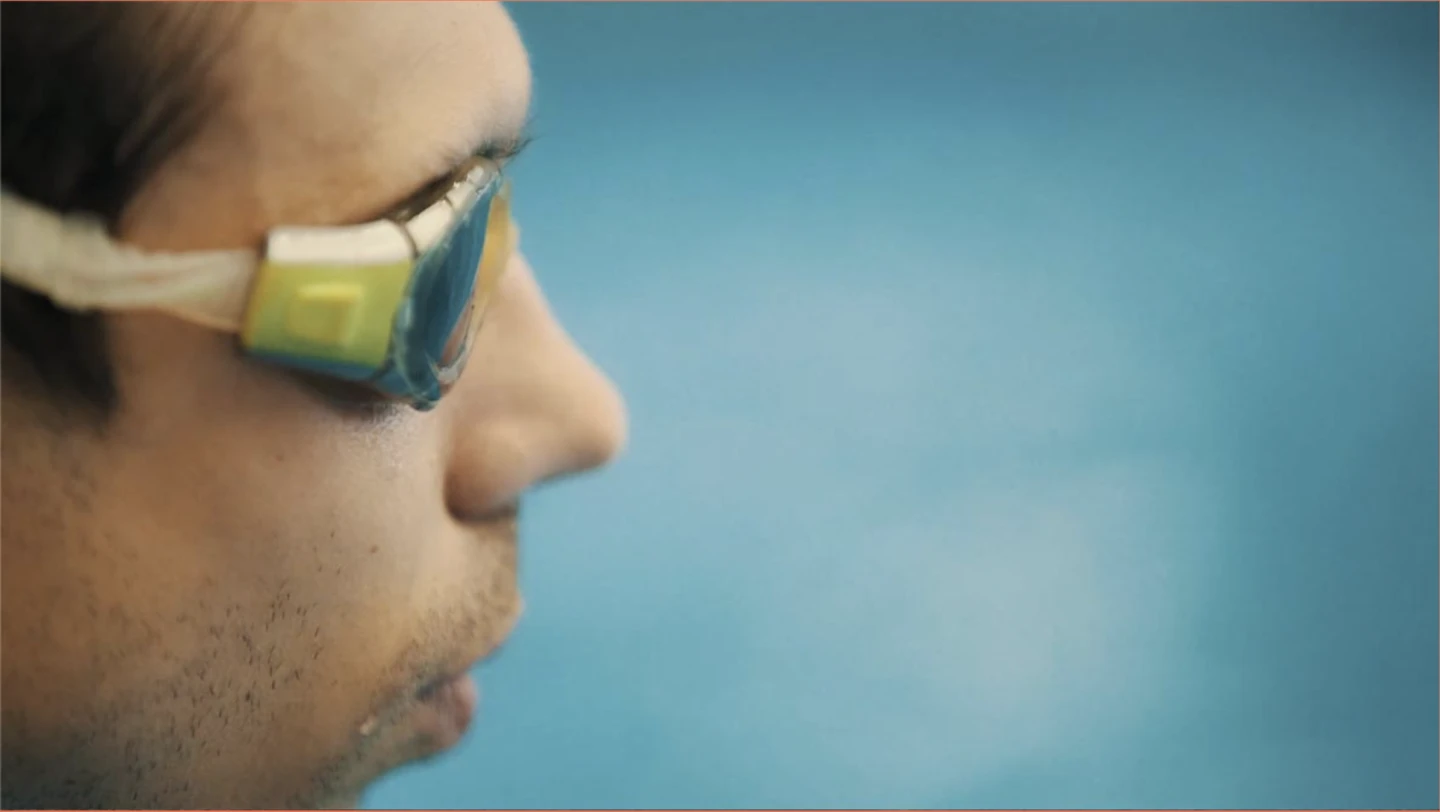 Johnny doesn’t see barriers, he embraces the challenges sports present him.
Johnny doesn’t see barriers, he embraces the challenges sports present him.
While finding a job continued to present challenges, Johnny actively sought balance through sport, eager to maintain a positive frame of mind.
“I needed to go my own way and do something fun again. I remember watching the college surfing championships called ADH Open in 2016, which inspired me to try surfing. I thought for myself, ‘What would I need to do to compete in 2019?’ So, I set about building a special skateboard for training purposes to see if I could do it.
“I have to say, it couldn’t have worked out better. My goal to compete at the ADH Open was definitely a turning point. It literally changed my life and helped to make it what it is today! The design for my surfboard was only finished 10 days before the competition. I had never tried it before, and no one knew if it would even work. Nevertheless, I competed and made it to the second round, ranking higher than others without disabilities. It was a rad.”
"It literally changed my life and helped to make it what it is today! Johnny Grasser, "
Climbing a mountain
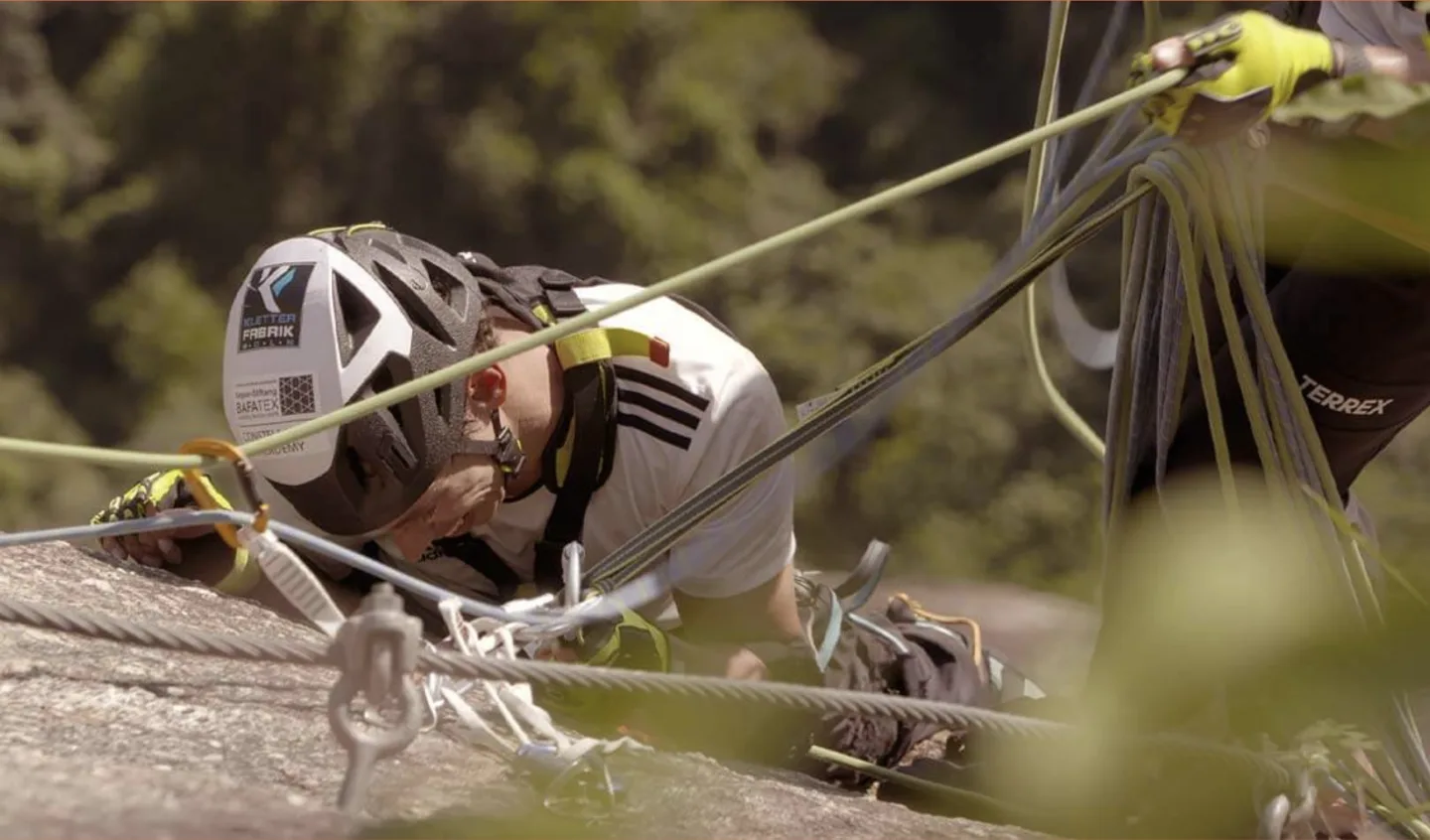 For many, climbing Sugarloaf Mountain would seem like an impossible challenge, but not for Johnny.
For many, climbing Sugarloaf Mountain would seem like an impossible challenge, but not for Johnny.
Triggered by a newfound confidence and renewed determination, Johnny was inspired to continue pushing the boundaries which ultimately led to him climbing Sugarloaf Mountain in Rio de Janeiro, Brazil. He explained that this project was the most challenging he’d ever undertaken.
“I had three years of ups and downs in which I didn’t know if the project would work out or not. Suddenly sponsors were dropping out, it wasn’t clear if the team that was going to accompany me would still compete, or if we’d have a camera crew to capture everything.
“But we did get to Sugarloaf Mountain and my team did an incredible job to get me up there. In the end, I needed a lot more help than anyone thought, but it felt cool to get there and at the same time, so surreal.”
Pursuing these projects, he says, brought him into contact with adidas, where he has been a staunch and committed ambassador for the past two years.
"My goal is to give back and motivate other people to do whatever they're doing, because I think you have to dare to do something, and we know that if you never try, you will never know."
Pushing the limits with as a team
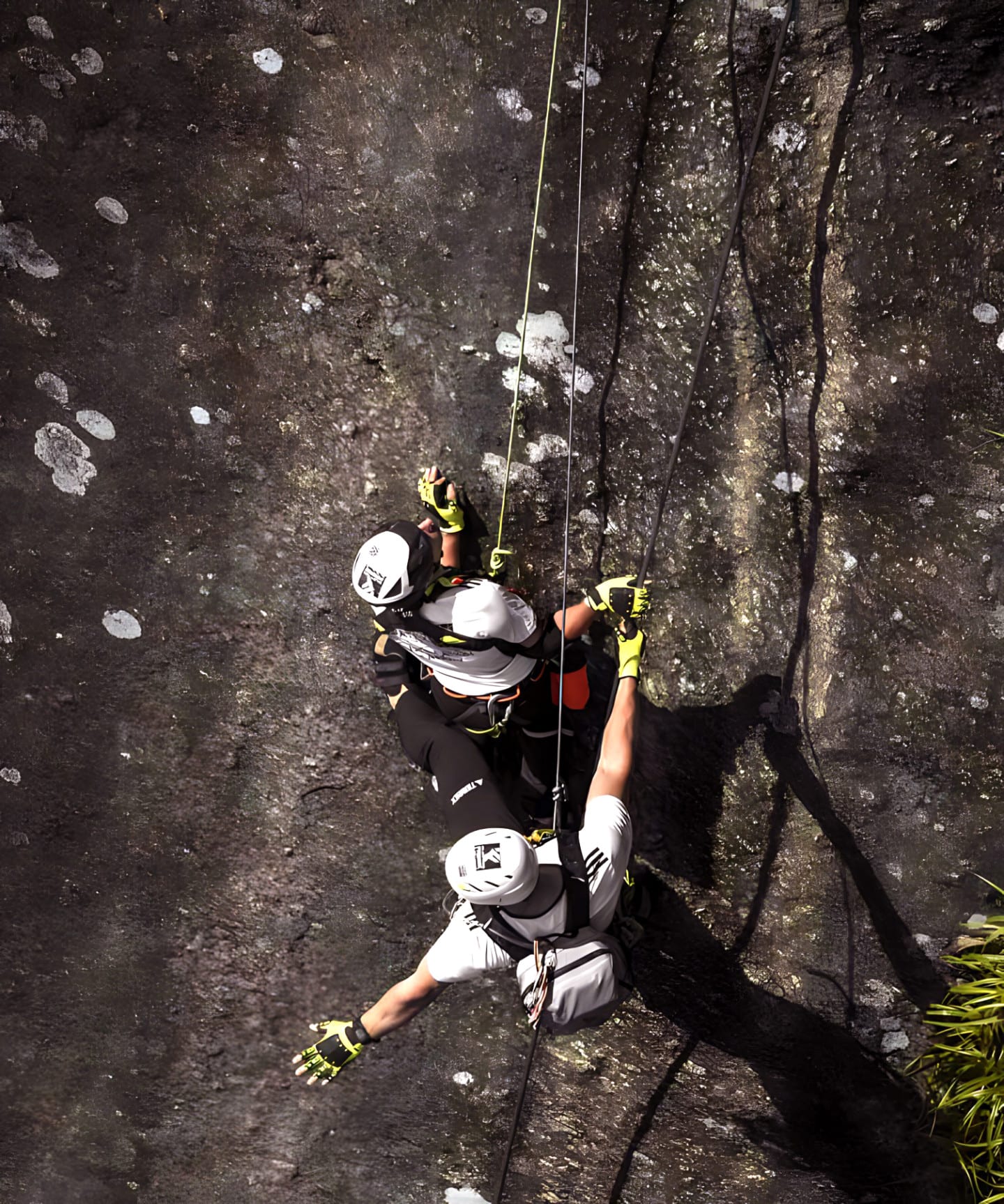 Teamwork in action.Johnny understands the challenges he faces and is also incredibly aware of – and grateful for – the strong team that stands behind him.
Teamwork in action.Johnny understands the challenges he faces and is also incredibly aware of – and grateful for – the strong team that stands behind him.
“None of the projects I undertake would be possible without a team. I always need at least one person to help me. When I was surfing, I had at least four people in the water with me, helping me get up, pushing me into the waves. For my 7.5-meter jump, I needed people to carry my wheelchair up to the diving board. At the Mud Master, I needed people to run with me, to help me, sometimes even carry me. In Rio de Janeiro I had a team that helped me all the way up. I’m always the initiator, but in the end it’s teamwork that drives success. Of course, it also requires intensive training which is my elixir of life. If I don’t train today, it takes me three days to get back where I was yesterday.”
"I’m always the initiator, but in the end it’s teamwork that drives success."
As we were talking about his daily training, I was curious to know what he meant by ‘impossible is nothing and training is everything’, which he mentions as one of his guiding principles – one that perfectly matches our company’s attitude.
“If I don’t lay the foundations, or at least try to provide motivation, I can’t expect other people to fight for me. At the end of the day, that’s what my team does when they take part projects with me. They struggle for me, so I also need to put in some hard work to try and balance things out.”
Keeping your head held high
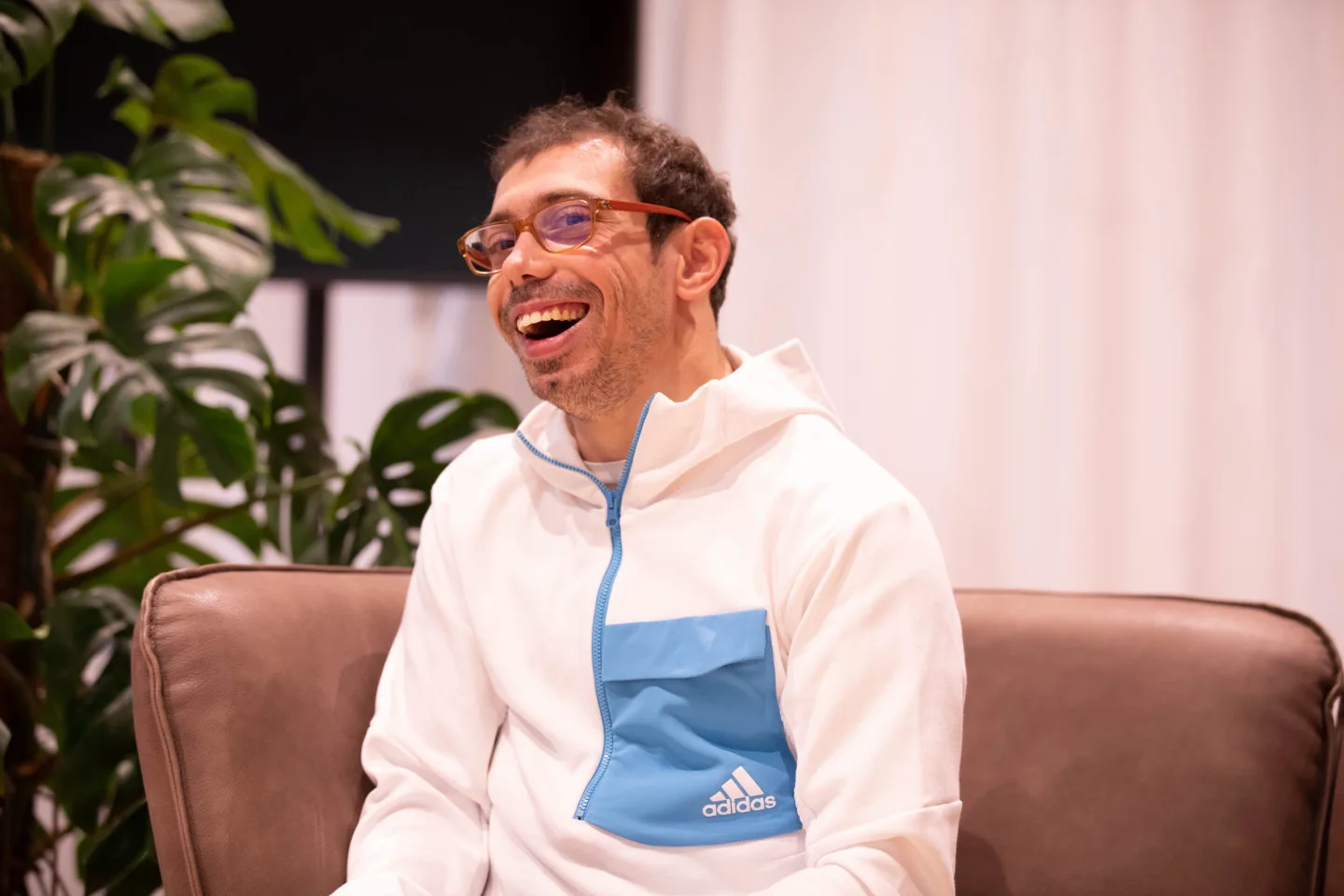 If you never try, you’ll never know what you’re capable of.
If you never try, you’ll never know what you’re capable of.
Throughout our conversation, I was wondering how Johnny managed the mental ups and downs associated with undertaking the challenges he pursues.
“Just try things out. If it doesn’t work, think about what it would take to make it work. Talk to people so that you can come up with new ideas and potential solutions. The surfboard didn’t look like it was going to work for a long time, but in the end it did.
"If it would have failed then okay, but then at least I’d tried. That's already more than what most people would do. This is my motivation."
With this in mind, I asked Johnny what was next on the cards.
“I decided that I needed a break before starting on my next project. So, in the meantime I wrote a book. It’s simply a biography of my life, which is rather a small project from a sporting point of view. You know I’m up for crazy things because it’s just fun. So, two months ago, I became part of a para-surfing team with the goal of competing in the ISA World Championships in Huntington Beach from November 5-11, 2023.”
In parting, Johnny gave me one last piece of advice – one that he believes will help anyone deal with setbacks in life.
“Simply have fun in life and enjoy everything you do. Understand that setbacks are necessary, because they force you to think more creatively, to look for solutions or find another path.”
Johnny, we are glad to have you as part of the adidas family! We wish you all the best for your next endeavor and we’ll be cheering you on from the side lines.




